Listening to Waves
NSF Awards: 1657366
2021 (see original presentation & discussion)
All Age Groups
Our program seeks to engage students in science through the science of music. With this goal, we have created a set of web applications for students to analyze and play with sound, and an NGSS-aligned curriculum centered on the applications. The applications and curriculum are publicly available and are being used hundreds of times daily. When used in combination with physical hands-on activities, they have been shown to improve the students' academic engagement with science, self-efficacy, and intention to pursue a science career. In this video, we present an overview of the tools and the program. The web applications and curriculum are publicly available and very easy to use. They can be accessed through our website: www.listeningtowaves.com/sound-exploration
Related Content for Super Fun Science of Music Hands-on Online Tools.
-
 2021Virtual PD for STEM Teachers—Lessons for a New Landscape
2021Virtual PD for STEM Teachers—Lessons for a New Landscape
Sarah Michaels
-
 2021Community Educators Turn to CLEAN in Adapting to Pandemic
2021Community Educators Turn to CLEAN in Adapting to Pandemic
James Callahan
-
 2017EarSketch: teaching coding through music
2017EarSketch: teaching coding through music
Lea Ikkache
-
 2022Black Representation in the Science Curriculum
2022Black Representation in the Science Curriculum
Catherine Quinlan
-
 2021Remote Sensing: STEM Activities Progress Despite COVID
2021Remote Sensing: STEM Activities Progress Despite COVID
Betsy Stefany
-
 2018Idea Thread Mapper
2018Idea Thread Mapper
Jianwei Zhang
-
 2017What's This? Just Listen : The Sound of Silence
2017What's This? Just Listen : The Sound of Silence
Erin Ottmar
-
 2019PLANS: Choose to Learn
2019PLANS: Choose to Learn
Adi Kidron
Playlist: ITEST Videos Playlist
-
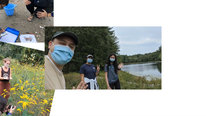 2021Socially-Distanced Community Conservation Partnerships
2021Socially-Distanced Community Conservation Partnerships
Nicole Freidenfelds
-
 2021CryptoComics - Cryptology and Cybersecurity for Kids
2021CryptoComics - Cryptology and Cybersecurity for Kids
Christine Wusylko
-
 2021Stories of Algebra for the Workplace
2021Stories of Algebra for the Workplace
Candace Walkington
-
 2021Empowering Students in Math Through Entrepreneurship
2021Empowering Students in Math Through Entrepreneurship
Erin Krupa
-
 2021Inventing Designing and Engineering for All Students
2021Inventing Designing and Engineering for All Students
Wendy Martin
-
 2021The Human Body in P6 STEM Teaching: The BODYMODELS Project
2021The Human Body in P6 STEM Teaching: The BODYMODELS Project
Neal Grandgenett
-
 2021Our Experiences with Game Based CRC, Esports, and the Future
2021Our Experiences with Game Based CRC, Esports, and the Future
Mark Van Auken
-
 2021iSTEM-Xe: Implications of COVID-19 on the Black Community
2021iSTEM-Xe: Implications of COVID-19 on the Black Community
Shannon Jolly
-
 2021Interest Stereotypes Cause Gender Gaps in STEM Motivation
2021Interest Stereotypes Cause Gender Gaps in STEM Motivation
Marley Jarvis
-
 2021Voices to Hear
2021Voices to Hear
Shakuntala Gopal
-
 2021Challenger Center Classroom Adventures
2021Challenger Center Classroom Adventures
Lance Bush
-
 2021Chief Science Officers Go Virtual
2021Chief Science Officers Go Virtual
Kelly Greene
-
 2021Billion Oyster Project Curriculum and Community Enterprise
2021Billion Oyster Project Curriculum and Community Enterprise
Dr. Lauren Birney
-
 2021Catalyzing Inclusive STEM Experiences: Tune in for Equity
2021Catalyzing Inclusive STEM Experiences: Tune in for Equity
Lara Hebert
-
 2021Super Fun Science of Music Hands-on Online Tools.
2021Super Fun Science of Music Hands-on Online Tools.
Victor Minces
-
 2021Impact of a Family-Community-University Engineering Project
2021Impact of a Family-Community-University Engineering Project
Amber Simpson
-
 2021SPIKEY-20: A Virtual Epidemic for Connecting with COVID-19
2021SPIKEY-20: A Virtual Epidemic for Connecting with COVID-19
Yasmin Kafai
-
 2021GaleForce: Girls Immersed in Robotics Learning Simulations
2021GaleForce: Girls Immersed in Robotics Learning Simulations
Beryl Hoffman
-
 2021My STEM Story: Students Explore Science Identities
2021My STEM Story: Students Explore Science Identities
Ed Madison
-
 2021COVID-Inspired Data Science for Youth
2021COVID-Inspired Data Science for Youth
Jan Mokros
-
 2021Engineering Design for Rural Middle School Students
2021Engineering Design for Rural Middle School Students
LaTricia Townsend
-
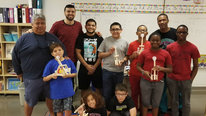 2021SEBA: STEM Engagement Through Mentoring
2021SEBA: STEM Engagement Through Mentoring
Rick Greer
-
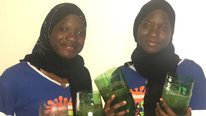 2021Engineering WINS
2021Engineering WINS
Jacqueline Genovesi
-
 2021Developing Middle School Students' AI Literacy
2021Developing Middle School Students' AI Literacy
Helen Zhang
-
 2021Collaboration Dynamics and Culturally Responsive Teaching
2021Collaboration Dynamics and Culturally Responsive Teaching
Meredith Kier
-
 2021Sustaining a STEM Learning Ecosystem During a Pandemic
2021Sustaining a STEM Learning Ecosystem During a Pandemic
Denise Nacu
-
 2021Internships for Underrepresented Students Amid the Pandemic
2021Internships for Underrepresented Students Amid the Pandemic
Lynda Gayden
-
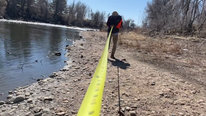 2021Place-Based Data Literacy: Protecting the Platte
2021Place-Based Data Literacy: Protecting the Platte
Samantha Schall
-
 2021Embodied Coding in Augmented and Virtual Reality
2021Embodied Coding in Augmented and Virtual Reality
Ying Wu
-
 2021WeatherBlur: student initiated citizen science program
2021WeatherBlur: student initiated citizen science program
Rebecca Clark Uchenna
-
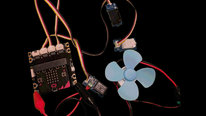 2021Enabling Opportunity: Bridging Science & Physical Computing
2021Enabling Opportunity: Bridging Science & Physical Computing
David Jackson
-
 2021Helping States Plan to Teach AI in K-12
2021Helping States Plan to Teach AI in K-12
Christina Gardner-McCune
-
 2021RPPforCS: Research Practitioner Partnerships across K-12
2021RPPforCS: Research Practitioner Partnerships across K-12
Rebecca Zarch
-
 2021Keeping the focus on dimensions of quality math discourse
2021Keeping the focus on dimensions of quality math discourse
Paola Sztajn
-
 2021Building Community to Shape Emerging Technologies
2021Building Community to Shape Emerging Technologies
Judi Fusco

Victor Minces
Research Scientist
I would love to hear your comments. And I would love it if you help me spread the word for these tools that students really love. I will be happy to train teachers and meet with students.
Go to www.listeningtowaves.com to access the web applications, curriculum, and a loooot of media
Victor Minces
Research Scientist
And if you are a researcher I am always open to collaborations. The science of music can go in so many directions!
Aman Yadav
Professor
I love the connection between music and STEM. Are these tools being used my music or STEM teachers or both? How do you support teachers to connect music and STEM since not everyone might behave a background in both disciplines.
Victor Minces
Victor Minces
Research Scientist
Aman,
Even though the main target is the science classrooms, I have the feeling the apps are being used in other contexts. They are being used about 800 times per school day. I would love to know all the ways in which the tools are being used. We have created NGSS-aligned lesson plans that are posted through our website, together with tutorials. I hope that the lesson plans and tutorials are good enough so teachers can use them.
Thanks for your question.
Aman Yadav
Professor
Victor,
Thanks for the response. Great to see that science teachers are using the tool and you have a NGSS-aligned lesson plans. I look forward to checking it out. This aligns with one our projects where we are working to bring computational thinking in middle school Arts classrooms.
Aman
Victor Minces
Victor Minces
Research Scientist
If you have ideas for using the resources I will be happy to collaborate.
Thanks!
NATHAN KIMBALL
Curriculum Developer
Hi Victor, These are awesome web tools--I just just took a minute to check them out. I've long been a fan of making the connection of an event with its real-time abstract representation as providing deep insights for learning. The fact that you can "play" the different tools brings up so many things, that I think reinforce learning with them, for instance, the gesture of the hand associated with a sound and its representation. It is also great that a brief encounter can be immediately informative, but there is depth there that can carry learners in science or music much deeper. Where do you hope to go next with these tools?
Victor Minces
Victor Minces
Research Scientist
Hello Nathan.
Where I hope to go next. So far the lesson plans and activities have focused on the science classroom. I would love to incorporate lesson plans targeting music performance (for the music class), that way students can see that arts and science can be really integrated. I am also incorporating new features into the apps, and developing a visual programming language that clearly connects music structures with computer science.
Another direction is using the tools to teach college-level physics and signal processing. The apps make additive synthesis, subtractive synthesis, and granular synthesis really easy to understand.
And another direction is to use the apps to introduce data science and data literacy. We already published a paper showing their potential, but I would like to make the connection more explicit through the website. See: https://www.researchgate.net/publication/342154648_There's_Data_all_around_you_Improving_Data_Literacy_in_High_Schools_through_STEAM_based_activities
Many directions.
Thanks!
Rani Sullivan
thank you for making these web tools accessible to all.
Victor Minces
Victor Minces
Research Scientist
Pleasure! Please help me spread the word.
V
Ying Wu
I'm so excited to find out about all the progress that you and Alex have made on this project. I think tools for analyzing and visualing sound signals offer a great approach for intersecting arts and science.
Victor Minces
Victor Minces
Research Scientist
It is! Talk soon. Thanks for checking out the video.
Penny Thompson
What a great way to make abstract concepts concrete, and also to pique an interest in STEM among students already interested in the fine arts, and vice versa.
I am curious about how you measure self efficacy and intention to pursue STEM careers? Do you use an established instrument or did you develop one for your purposes? Do you have any publications out on the project yet?
Thank you for giving us a look at your work.
Victor Minces
Victor Minces
Research Scientist
We used a simple questionnaire suggested by our evaluator. Students filled the questionnaire before and after participation. The manuscript is under the final stages of review, I hope it will be approved and published soon in Connected Science Learning. Please stay tuned or send me an email in a couple of months.
Thanks!
Marcelo Aguilar-Rivera
Nice tool! More of these resources are needed for STEM!
Victor Minces
Ryan Campos
👏🏼👏🏼👏🏼
Victor Minces
Victor Minces
Research Scientist
Thanks! :)
Victor Minces
David Lockett
Albert Einstein Fellow
Hello! I enjoyed this video. Music naturally connects with STEM. Educators using music to make connections to STEM and NGSS is a great intersection for learning.Victor Minces
Victor Minces
Research Scientist
Thank you very much David.
Victor Minces
Research Scientist
Thanks!
Shad Wachter
Victor, thank you for these resources. As a STEAM teacher, I was looking for some lessons to utilize with my students to introduce sound waves. The tools you created will surely help them understand through experimentation and exploration. While these resources appear to be geared towards middle school to high school aged students, do you have any introductory lessons that your would recommend for upper elementary (3rd-4th grade)?
Victor Minces
Victor Minces
Research Scientist
Hello Shad, thanks for watching. Did you check the lessons on my website? They are made with 8th graders in mind, but they surely can be adapted for younger students. The web applications are enjoyable even for babies.
Monica Cardella
Thank you for your work on this project and thank you for creating this video to share your work!
Victor Minces
Victor Minces
Research Scientist
Thanks!
Further posting is closed as the event has ended.